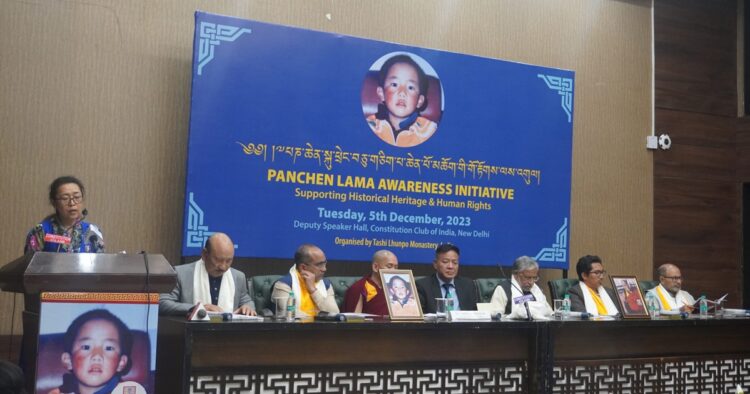The Tibetan government-in-exile has called upon Bharat and other democratic nations to pressure China into revealing the whereabouts of Gedhun Choekyi Nyima, the Panchen Lama who disappeared almost 29 years ago.
The occasion was a solemn event held in Himachal Pradesh, marking the 35th birth anniversary of Choekyi Nyima, who vanished just three days after being declared the reincarnated Panchen Lama by the Dalai Lama.
A joint statement issued by prominent Tibetan leaders urged foreign governments and the United Nations to direct their ambassadors in China to meet with the 11th Panchen Lama and ensure his well-being.
The Panchen Lama holds significant spiritual importance as the second most prominent figure in Tibetan Buddhism.
Sikyong Penpa Tsering, the political head of Tibet’s government-in-exile, voiced concerns over the Panchen Rinpoche’s fate, questioning whether he is alive and if so, under what conditions he has been living for nearly three decades. Tsering accused the Chinese government of gross violations of human rights and freedoms regarding the Panchen Lama’s disappearance.
The Dalai Lama identified Choekyi Nyima as the 11th Panchen Lama in 1995, following the death of his predecessor. However, China rejected this recognition and appointed its own Panchen Lama, Gyaltsen Norbu, leading to a contentious situation.
The Tibetan leaders demanded immediate access for an independent fact-finding commission to ascertain the Panchen Lama’s situation and ensure his basic human rights are upheld. Despite previous assertions by the Chinese government that the Panchen Lama is receiving education like other children and does not wish to be disturbed, questions regarding his true whereabouts persist.
The Tibetan leaders called upon the international community, including foreign governments and the United Nations, to recognize the gravity of the Panchen Lama’s enforced disappearance. They urged for diplomatic efforts to ensure his well-being and honor him as a victim of enforced disappearance, deprived of his fundamental rights.
The statement highlighted concerns about the plight of other Tibetan political prisoners and emphasized the sacrifices made by Tibetans, including self-immolations, to draw attention to the critical situation in Tibet.
The appeal for action resonated with a high-level parliamentary delegation from Estonia, which expressed solidarity with the Tibetan cause and emphasized the broader importance of protecting human rights and dignity in the face of challenges emanating from China.

















Comments